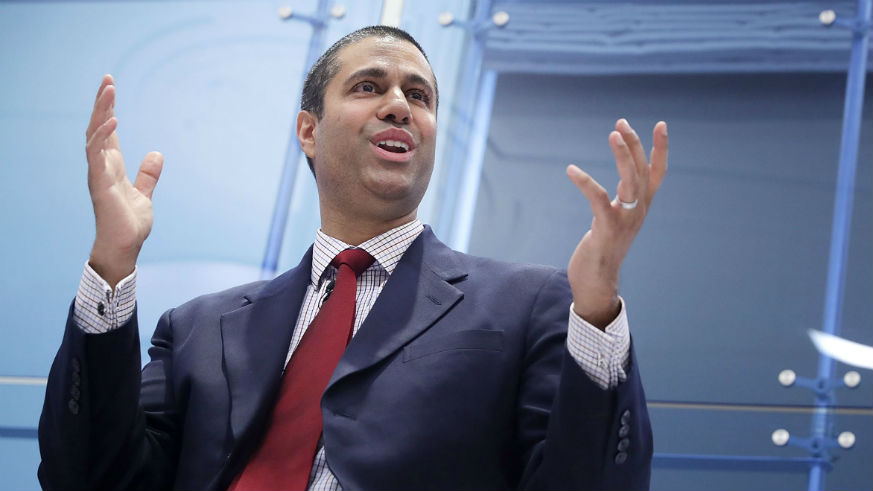On the heels of the Federal Communications Commission’s vote to repeal net neutrality last week, none of the seven major internet service providers will rule out establishing “fast lanes” for certain sites.
Net neutrality rules had prevented “paid prioritization,” in which an ISP like Verizon or Comcast could charge sites like YouTube or Netflix more in exchange for faster loading and streaming times, and sites that didn’t pay could be placed in “slow lanes.” After the repeal of those regulations, seven major ISPs — Verizon, AT&T, Comcast, Charter, Cox, Sprint and T-Mobile — would not rule out starting up fast and slow lanes, the Associated Press reported Wednesday. Most said they had “no plans” to do so, and some didn’t answer the question. Several said they wouldn’t block or slow down certain sites.
In terms of fast lanes, Verizon, AT&T, Sprint and T-Mobile didn’t answer an AP query about whether they would create them. Comcast, Charter and Cox said they had no plans to.
As to whether the companies would block or slow down sites, AT&T and Comcast said they “will not” do it; Charter and Cox said they had “no plans” to do it; and Sprint, T-Mobile and Verizon would not address their future plans.
The Trump-appointed head of the FCC, Ajit Pai, held a vote last week on net neutrality, which was repealed on a 3-to-2 party-line vote. The next stop is the courts: Several state attorneys general have sued to preserve net neutrality. During the public-comment period leading up to the vote, more than 23 million comments were left on the FCC website, a record. But up to 2 million of those comments were found to have misused Americans’ identities. New York State Attorney General Eric Schneiderman has been investigating the fraud and asked Pai to delay the vote. But it went ahead, and Schneiderman said the FCC has refused to cooperate with his investigation.
















